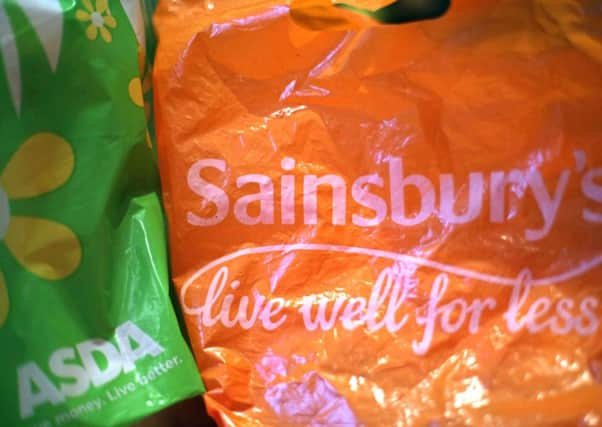Leader comment: The risks of super-sized supermarkets


The arch-capitalists who run our supermarkets seem intent on proving Karl Marx right. The revolutionary socialist argued that economies of scale would result in large companies eliminating smaller rivals until all that were left were vast private monopolies. This, he claimed, would be one of the factors that would lead to the inevitable downfall of capitalism.
So doubtless he would be nodding sagely at new plans to merge Asda and Sainsbury’s to create a supermarket giant controlling nearly £1 for every £3 spent in the sector, surpassing Tesco as the biggest.
Advertisement
Hide AdAdvertisement
Hide AdHowever, what Marx may not have appreciated is the power and determination of liberal democracies to regulate the market for the good of the consumer.
In its latest annual report, the UK Competition & Markets Authority notes mergers can have “harmful” effects – such as higher prices and lower quality – so this is a deal that will almost certainly attract considerable scrutiny.
On the one hand, it is perhaps only fair that the authorities allow another Tesco-sized operation. And perhaps, by creating two companies of near-equal size, that would increase competition to the benefit of us all.
But it could also see the two giant squash all the rest as they battle for supremacy. And this is not simply a consumer issue.
Supermarkets have at times used their market power to drive the prices they pay to suppliers to below the cost of production. In 2015, the average cost to produce a litre of milk was about 31p, but the average farm gate price was several pence lower. Amid uproar, some supermarkets started advertising milk sold at a higher price to benefit farmers as if this was a charitable act.
The CMA should, therefore, not only look at the effects of the proposed merger on shoppers but also on suppliers.
And, of course, as supermarkets are responsible for most of the food we eat, they have a significant impact on our health. Most of us eat too much sugar, fat and salt due to tastes that evolved long before food became as cheap and easily available as it is in the modern world. That primal drive has created a problem for supermarkets, even if they have the best of intentions. Add more of these ingredients to food and we’ll buy them more, boosting their profits, but also making us more likely to become obese. So the CMA will need to be very careful when making a judgement that will have significant effects on the UK for years to come.